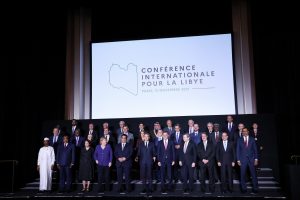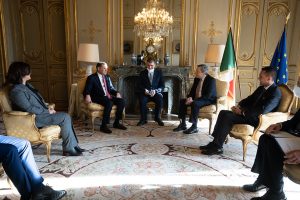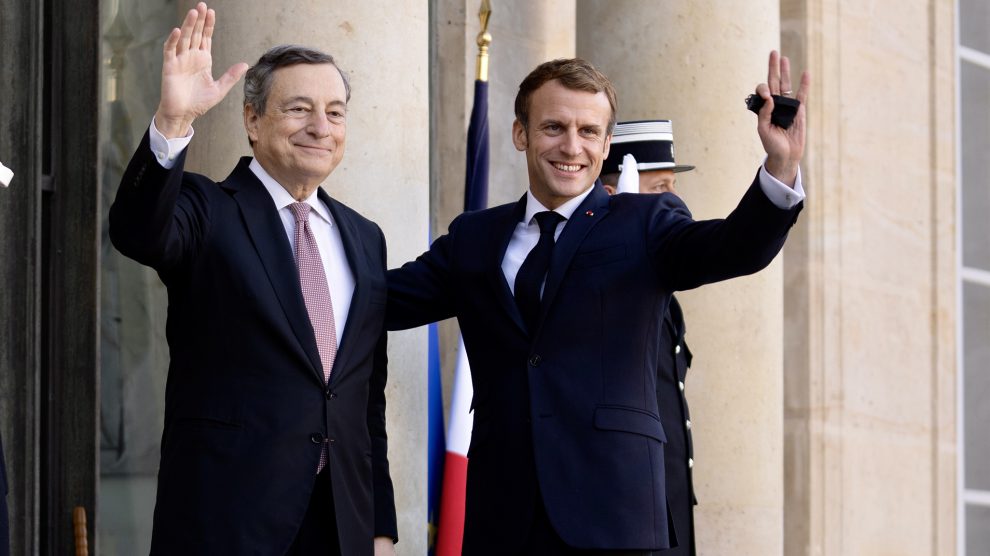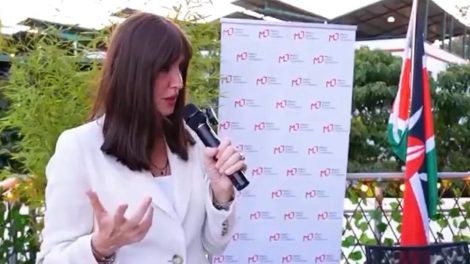In attending the Paris Conference on Libya, Italian Prime Minister Mario Draghi maintained his line: Europe, he believes, must lead the country’s stabilisation and Italy must be the engine of this activity. Together with France, Rome shares the ability to influence North Africa and the Sahel, and Germany, which has shown interest in taking part in stability-oriented dialogues regarding Libya and the entirety of the wider Mediterranean.
This Conference was born as a unilateral initiative of the French “who always tend to treat Libya as their exclusive theme and make the international community feel present, but risk a boomerang effect every time they do this,” as Arturo Varvelli, director of the European Council on Foreign Relations (ECFR) in Rome, told Decode39.
“In Libya, the French are not well received, even if they don’t realise it. Italy has put on a good face and has essentially asserted its leadership over Libya, partly due to the positive relationship between [PM] Draghi and [French President] Emmanuel Macron, effectively opening up a sort of co-presidency in Paris, attended by Mr Draghi himself.”
The co-presidency of the International Conference at the Maison de la Chimie is emblematic of a sense of shared responsibility, which has been reciprocated by Paris since Mr Draghi became PM, despite the fact that the French have held ambiguous positions on the Libyan dossier in the past. As it stands, Rome’s objective is to transform the ceasefire-induced consolidation into a wider stability.
According to Giuseppe Dentice, Head of the MENA Desk at the Centre for International Studies (CeSI), the effectiveness of these Conferences is uncertain. “Certain limits and problems are brought forward by Libyan actors themselves,” he told Decode39, “as well as some regional actors that move between the various fronts inside Libya, and international players that move with very precise strategies aimed at blocking those of their counterparts.”
According to Mr Dentice, “at present, anarchy and confusion abound in Libya, and thus it is necessary to observe what is happening. Without indulging in too many illusions about what might not happen with the results.”

The road toward the elections
The Italian government deems the elections in Libya crucial. Those were set by the UN – through resolution 2570 in April 2021 – for December 24th, 2021. The current ceasefire, the negotiations and complex political dialogue are setting the stage for the creation of a new government – one that’s not conveyed from the outside, as the current and previous were, but elected by the citizens.
On this front, Italy – having maintained contact with all sides during the years of conflict – is clear on the problems and risks. Not voting is dangerous because it could rekindle violence; voting could be just as dangerous because it could produce the unhinged reactions of those who do not accept the results. This is the thinking among the government officials in Rome.
“There is scepticism, including from Italy, about the ability of these elections to produce lasting results. In truth, we’ve seen some progress in the last year. If on one hand we’re far from rule of law in Libya, on the other this is the first time Tripoli has a credible referent – and episodes of violence have been far less. As for the elections, most of the constituencies do not want them: going to the polls risks jeopardising this fragile balance and the division of resources that underlies it,” added Mr Varvelli.
The moment is delicate, and as December 24 approaches – even though the date is not definitively confirmed – the rifts are widening. Hence, the very convening of this Conference is seen by the Italian government as a good result, along with France and Germany. The final document that will come out of Paris – according to a draft obtained by Decode39 – puts great emphasis on ensuring the holding of presidential and political elections in Libya.
According to the draft, those who will hinder the electoral process will be brought before the Sanctions Committee of the UN Security Council. “Whoever will try to hinder or tamper with the elections will be held responsible,” it reads.
As for the dynamics of the vote, it appears as if a compromise has been found between those who wanted the political and presidential elections to be held on two different days – France and Egypt – and those who preferred just the one, such as Italy, for fear of Libyan-born hindrance between the ballot days. The document mentions the “need to announce the results of the parliamentary and presidential elections simultaneously”.
Libyan leaders are also urged “to ensure women representation in the new legislature,” encouraged “to create a permanent and acceptable Constitution” and to “establish a High Commissioner for National Reconciliation.” Furthermore, the draft stresses that the political transition’s success will be ensured by “elections, the ceasefire and the withdrawal of mercenaries.”

Foreign armed forces
The European co-management – as wanted by Mr Draghi – also has a more strategic objective: the exit of foreign military forces from Libya. A goal shared by US Vice President, Kamala Harris: for both Washington and Rome (and thus, Brussels) it’s crucial that both Turkish units deployed in Tripolitania, as well as those of the Russian Wagner Group and other African contractors positioned in Cyrenaica, leave the country.
In this regard, both Italy and the US believe that a future president and an executive legitimated by the ballot box would have more influence and, above all, be better positioned to receive greater political and diplomatic support.
The Italian, European and American lines are completely overlapping: a strong convergence that may inspire other countries in the region, both those that are directly involved and those worried that foreign armed forces could cause Libya to slide back into violence.
The draft stresses “the importance of establishing a unified, global and responsible military and security structure”. The Paris Conference thus “welcomes initiatives to integrate members of armed groups into government institutions” and offers “support to the work of the 5+5 Military Committee for the withdrawal of mercenaries and foreign forces,” calling on all parties involved “to ready a plan of action for the withdrawal of mercenaries and foreign forces.”
The latter call is important, as in these hours the Libyan media report that Abdelhamid al Dbeibah’s government would not have responded to the request of the 5+5 Military Committee to expel a group of Syrian mercenaries, while representatives of the forces of the so-called “Volcano of Rage” in Tripolitania would have decided to keep the mercenaries around until after the elections.
Yesterday, however, general Khalifa Haftar’s forces in Cyrenaica decided to remove 300 foreign mercenaries from the areas under its control: a decision taken without setting conditions or asking for the simultaneous exit of a similar group from Tripolitania, despite having been agreed upon by the members of the 5+5 Military Committee – it has not been clarified which countries they belong to, but it is likely that they belong to Libya’s African neighbors (Chad, Niger and Sudan).





